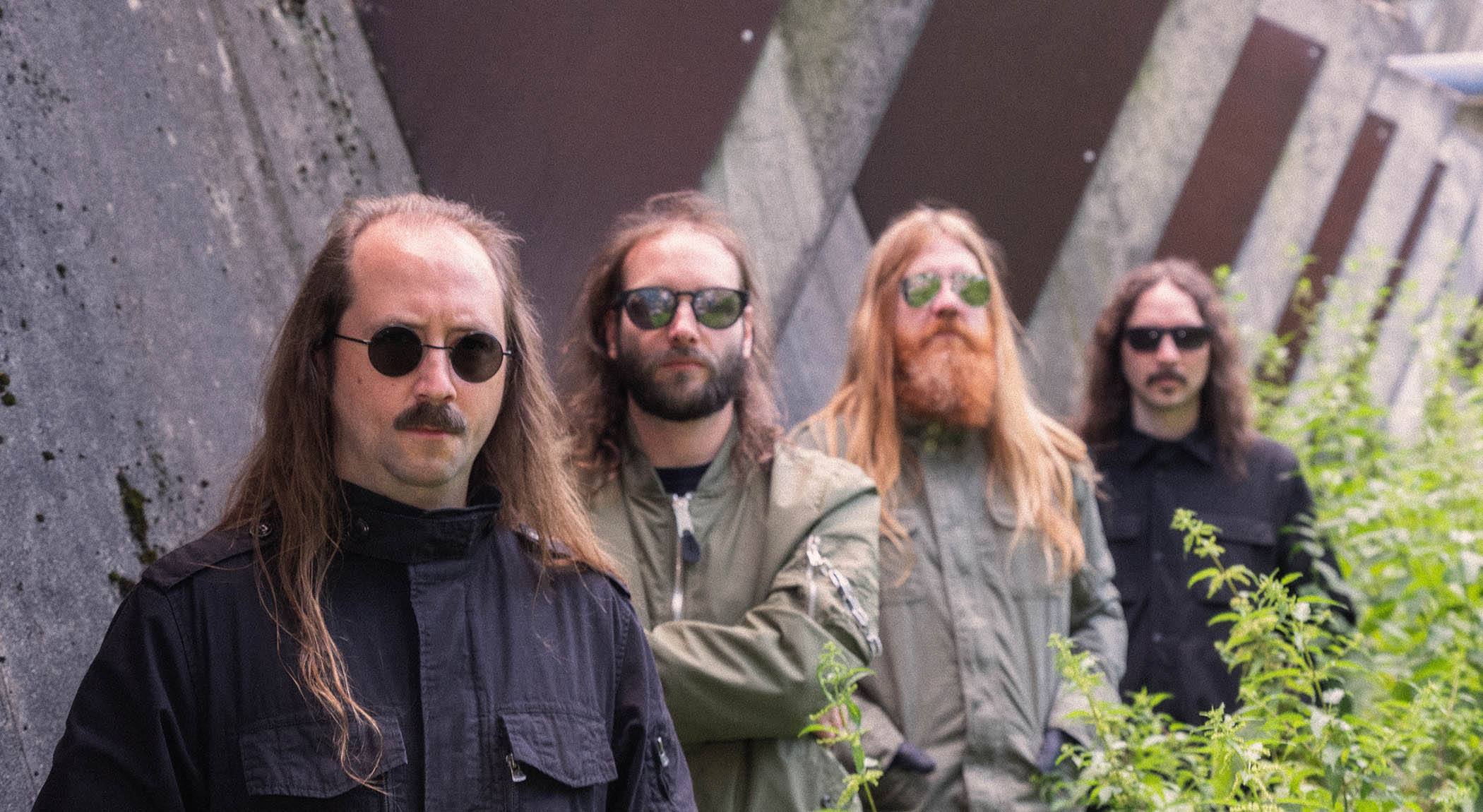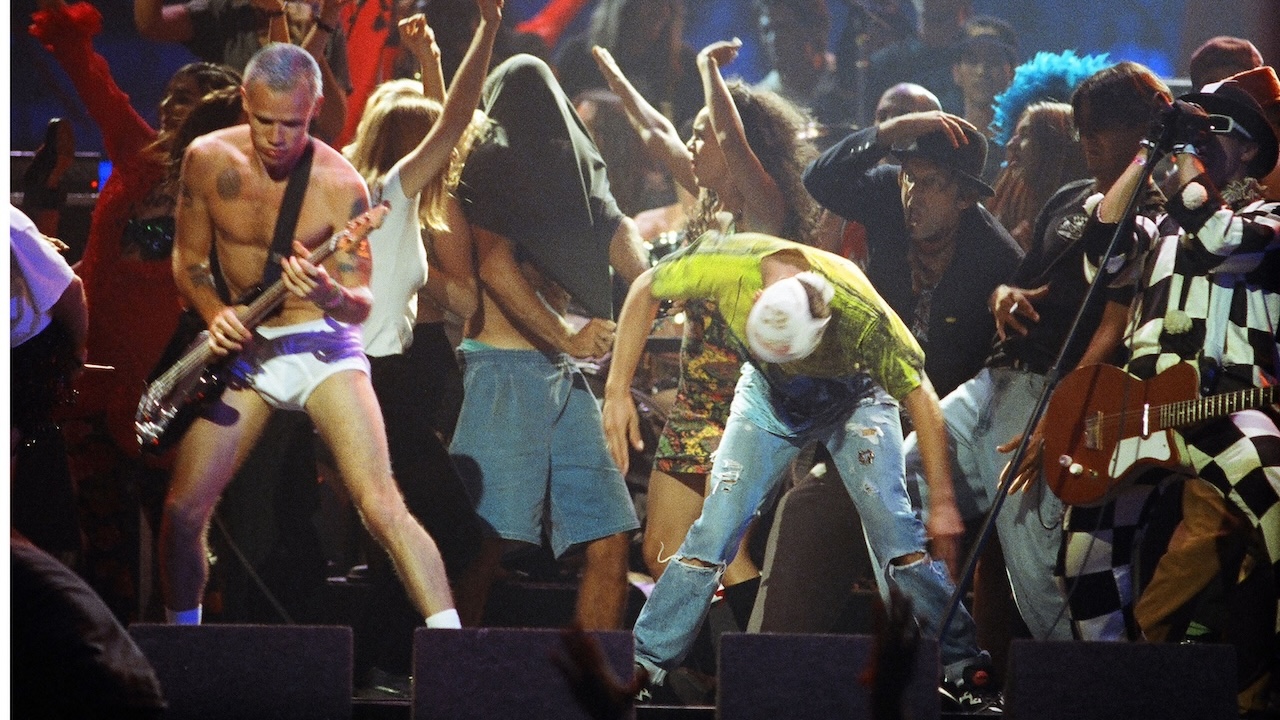“We don’t want to be just another modern death metal band. Taking ideas from David Gilmour and George Harrison is a big deal for us”: How Blood Incantation are opening the Stargate to take death metal to a higher cosmic plane
On album number four, Paul Riedl and Morris Kolontyrsky are taking their “Morbid Angel meets Pink Floyd” concept to new creative heights
![Blood Incantation's Paul Rield [left] and Morris Kolontyrsky tear it up live in this artily shot action photos](https://cdn.mos.cms.futurecdn.net/YCvQE8rCMG7uq7DQE88UJh.jpg)
All the latest guitar news, interviews, lessons, reviews, deals and more, direct to your inbox!
You are now subscribed
Your newsletter sign-up was successful
Released at the tail end of 2024, Blood Incantation’s fourth record, Absolute Elsewhere, won them high praise from every corner, dominating many of the year-end metal roundups and even being awarded the top spot in Metal Hammer’s album-of-the-year list.
For vintage rock-loving guitarists Paul Riedl and Morris Kolontyrsky, the idea of writing an album with only two songs, each divided into three sections, came very naturally.
“Paul and I grew up listening to Pink Floyd, so that element is in us both,” Kolontyrsky says. “Morbid Angel is probably our biggest influence, but we don’t want to be just another modern death metal band. Taking ideas from David Gilmour and George Harrison is a big deal for us. They probably weren’t considered the most technical of players for their time, but their songs and melodies were certainly the most memorable. That’s what we’re trying to do.”
There, perhaps, lies the secret to Blood Incantation’s success. At a time when many death metal bands are trying to sound as futuristic as possible, the Denver four-piece prefer to look back to the progressive rock of the ’70s and the death metal of the late ’80s.

The vintage charm of their newest tracks, two sprawling 20-minute-plus orchestrations titled The Stargate and The Message, is as potent as it gets.
“When we formed, everyone else was doing cavernous death in low tunings or super-tech sweeps on fanned frets,” says Riedl, who handles vocals while sharing guitar and synth duties.
“There was no mystical weirdness, spoken word, synthesizers or clean guitars. You can tell those players never listened to Uli Jon Roth, Robin Trower or Frank Marino. Nowadays, if you like old death metal, people will call you a hippie or a boomer, but all those original bands loved ’70s music.”
All the latest guitar news, interviews, lessons, reviews, deals and more, direct to your inbox!
Recorded at Hansa Tonstudio in Berlin, Absolute Elsewhere contains a breathtaking wealth of dazzling tones, from the thicker distortion you’d expect from their dual B.C. Rich and Peavey rigs to more atmospheric and effected Strat-powered cleans.
We wanted thick layers like you hear on Heartwork by Carcass or Siamese Dream by the Smashing Pumpkins
Paul Riedl
While on tour, both guitarists prefer to stick with pedals that can be easily replaced, like MXR’s Carbon Copy and Boss’ AC-3 Acoustic Simulator.
“The leads were recorded with a modded block letter Peavey 5150 that we borrowed from Mille Petrozza of Kreator,” Riedl adds. “All of the cleans were bi-amped through a RE-501 Chorus Echo into a Roland Jazz Chorus and a Fender Twin. That’s how we got that beautiful stereo spread.
“We wanted thick layers like you hear on Heartwork by Carcass or Siamese Dream by the Smashing Pumpkins. There were three mics on each cab, so you’re probably hearing a dozen guitars at any given moment.”
- Absolute Elsewhere is out now via Century Media.
Amit has been writing for titles like Total Guitar, MusicRadar and Guitar World for over a decade and counts Richie Kotzen, Guthrie Govan and Jeff Beck among his primary influences as a guitar player. He's worked for magazines like Kerrang!, Metal Hammer, Classic Rock, Prog, Record Collector, Planet Rock, Rhythm and Bass Player, as well as newspapers like Metro and The Independent, interviewing everyone from Ozzy Osbourne and Lemmy to Slash and Jimmy Page, and once even traded solos with a member of Slayer on a track released internationally. As a session guitarist, he's played alongside members of Judas Priest and Uriah Heep in London ensemble Metalworks, as well as handled lead guitars for legends like Glen Matlock (Sex Pistols, The Faces) and Stu Hamm (Steve Vai, Joe Satriani, G3).
You must confirm your public display name before commenting
Please logout and then login again, you will then be prompted to enter your display name.


